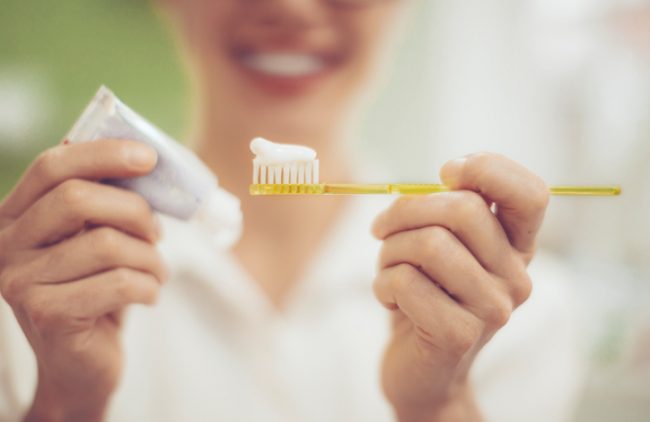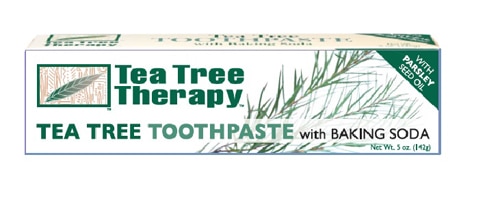When it comes to choosing a toothpaste, the selection of gels, pastes and flavors is dizzying. The endless permutations raise a host of questions, such as the importance of fluoride. A lot of people choose their toothpaste out of habit, often using the same brand all their lives. But if you want to become a more informed consumer, here are some things to consider. 
Most dentists recommend fluoride
Despite the controversy surrounding fluoride, especially fluoride in water, most dentists strongly recommend using a toothpaste containing fluoride. While some studies suggest that ingesting fluoridated water could interfere with neurological development, many more studies demonstrate fluoride’s topical effectiveness in preventing tooth decay. The proven advantages of fluoride for strengthening tooth enamel should be weighed against the hazards of toxicity.
How does fluoride work on teeth? It fills the tiny gaps in the enamel surrounding each tooth. Its fortifying quality protects teeth from acid, the root cause of tooth decay and cavities. It’s worth noting here that the American Dentist Association (ADA) only give their seal of approval to toothpastes that contain fluoride. Not having the seal, however, does not mean a toothpaste brand is below par. Participation in the program is strictly voluntary.
Does a whitener help with yellow teeth?
If your pearly whites have lost their luster, it could be attributed to a variety of factors, including age and diet. For older stains, you may need to teeth whitening strips that contain peroxide to bleach the color. For more surface stains, whitening toothpastes contain mild abrasives that can help polish teeth.
What’s the best choice for sensitive teeth?
Sensitive teeth can be frustrating to live with, making you wince through your meals. What causes sensitivity? It occurs when the dentin layer just beneath the enamel is exposed. Dentin is more porous than enamel and has tiny tubules that connect to the nerve in the center of the tooth. Any fluid that contacts the tubules stimulates the nerve and tends to be perceived as pain. If you have sensitive teeth, you may want to avoid teeth whiteners. The chemical agents they contain may irritate your symptoms. Talk to your dentist about gentler whitening alternatives.
Is there an advantage to natural toothpaste?
There are plenty of natural toothpastes that contain fluoride and many without. One of the biggest advantage of the natural route is the dentifrice contains no artificial dyes, sweeteners or flavors. And the range of flavors is often gourmet, from anise to raspberry to mojito mint. But also need to be skeptical. Charcoal toothpaste is trending—but there are no studies to support its safety or effectiveness.
Become a label geek
Some toothpastes are indicated for use only by adults and older children, while others recommend consulting a dentist before using for an extended period. You should also look at the list of ingredients. Most conventional toothpaste contains artificial flavoring, sweeteners and other chemical ingredients including Triclosan and microbeads.
The longer the list of ingredients, the better the probability that the toothpaste contains something irritating and potentially toxic. Be sure that you understand the potential health effects and risks of consuming dyes, chemicals and sweeteners.



